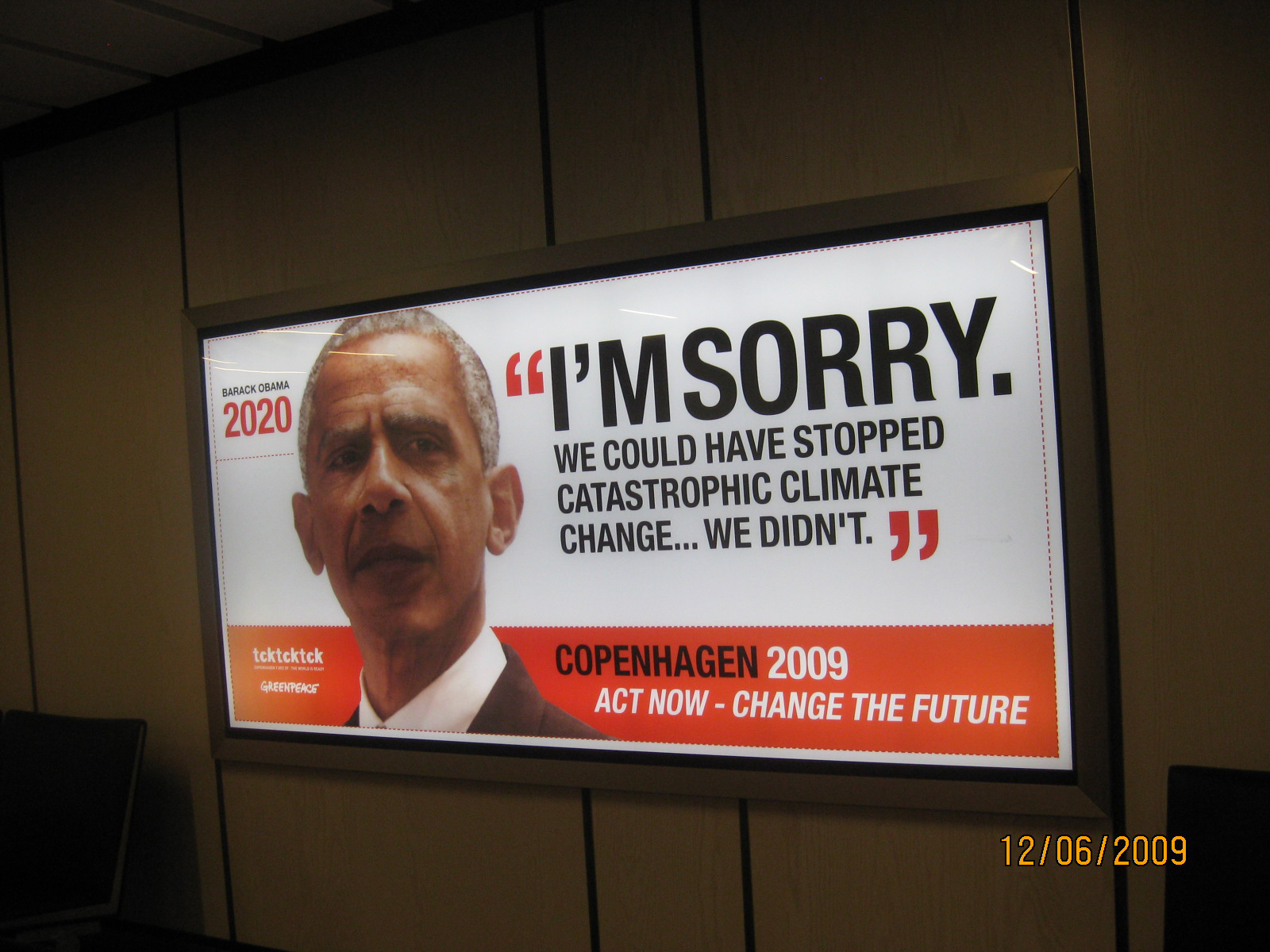My wife’s grandmother, Sadie, will turn 103 next month.
Of all the things that might concern or interest her, she lay awake the other night worried that world leaders won’t solve the climate crisis before it’s too late.
“I want the world to know how deadly serious is this enormous problem confronting us and threatening the safety and health of every human being on this planet now and for generations to come,” she wrote—longhand—to the delegates in Copenhagen, going on to thank them for trying so hard. “All of you are eagerly looking forward to some solutions.”
So imagine her dismay when “The Wall Street Journal”, a paper only 18 years older than she is, declared that “Business Fumes Over Carbon Dioxide Rule”.
The story reported that the Environmental Protection Agency officially declared that greenhouse gases, which the Supreme Court ruled in 2007 are pollutants under the federal Clean Air Act, endanger public health and must be regulated. The Journal apparently only talks to businesses that are more than 100 years behind the times, given that even Sadie understands why the EPA is finally taking action.
If the Journal had also talked to PG&E [PCG43.56 -0.07(-0.16%) ] or Exelon [EXC49.93 -0.23(-0.46%) ] , two giant utilities that recently broke ranks with the US Chamber of Commerce over the issue of carbon regulation, they might have heard fuming that the new rules took so long to get done.
Business only fumes over one thing more than new costs—uncertainty. What those companies, along with Apple [AAPL189.87 0.92(+0.49%) ], Nike [NKE63.44 -1.10(-1.7%) ], PNM Resources [PNM11.88 0.09(+0.76%) ] (companies that also broke ranks with the Chamber) and hundreds of other businesses understand, is that the methodical, public process of Clean Air Act regulation is one way to eliminate uncertainty and give them a seat at the table.
As Sadie points out, lots of money will be made by “eagerly looking” for solutions. The Journal would have found very different opinions if they had talked to Sunpower [SPWRA23.46 -0.99(-4.05%) ] in Silicon Valley, for example, which makes the world’s most efficient solar panels; or the engineering firm of Werner Sobek in New York, designer of very profitable “triple-zero homes” that are energy self-sufficient (zero energy consumed), produce zero emissions, and are made entirely of recyclable materials (zero waste); or General Electric (parent company of CNBC) , [GE15.68 -0.40(-2.49%) ] which has invested billions so far on wind power and stands to make lots more as demand increases for renewable energy products and project financing.
A hundred years ago, did the Journal only take the side of the horse stables that were soon replaced by horseless carriage makers; or only report on the lamentations of the gas lamp makers, instead of also reporting about the new Edison electric bulb company; or lament the flocks of carrier pigeons that would be jobless because of the newfangled telephone?
The truth is that taming carbon now means new, exciting businesses and the tens of thousands of people assembling in Copenhagen this month are onto something valuable for both the global environment and economy.
Sadie would have written more on this topic herself, but she was too busy driving her Toyota Prius to Best Buy to get a new energy-efficient TV. With any luck, the news from Denmark will improve over the next two weeks—and she’ll finally be able to get a good night’s sleep.
